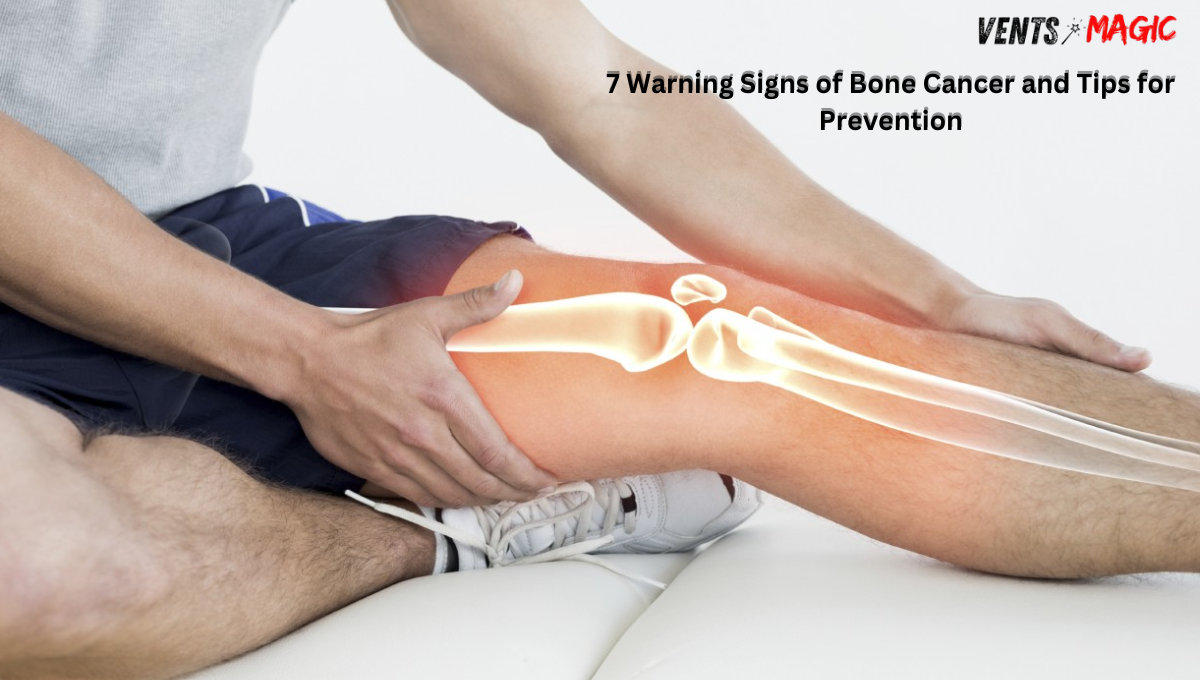7 Warning Signs of Bone Cancer and Tips for Prevention
7 Warning Signs of Bone Cancer and Tips for Prevention Bone cancer is a serious condition that can affect anyone, […]
7 Warning Signs of Bone Cancer and Tips for Prevention Read More »
Bone cancer is a relatively rare, but serious, type of cancer that originates in the bones and can cause significant pain, deformities, and other health complications. While the exact causes of bone cancer aren’t fully understood, there’s increasing research exploring possible ways to reduce the risk of this condition. Although completely avoiding bone cancer might not be possible, understanding its risk factors and ways to potentially mitigate them can be empowering.
In this article, we’ll break down essential information about bone cancer, including its types, potential risk factors, symptoms to watch out for, and the latest scientific insights into preventative measures. Additionally, we’ll explore how lifestyle changes, regular screenings, and early detection may play a role in managing your overall cancer risk.
Also Read: Characteristics of Gingelly oil
Bone cancer starts in the bone tissue and can develop in any bone in the body. However, it most commonly affects long bones in the arms and legs. This type of cancer can be classified into several types:
These cancers are unique in their cellular makeup and growth patterns, making each type require a different approach to treatment.
While the precise cause of bone cancer remains unknown, several factors have been linked to an increased risk. These factors do not guarantee that someone will develop bone cancer but are essential for understanding why some individuals are more susceptible:
Early signs of bone cancer can be easily overlooked as they often mimic other less serious conditions. If you experience any of the following symptoms, it’s a good idea to check in with a healthcare provider:
While no method can completely eliminate the risk of bone cancer, you can take steps to lower your general cancer risk. Here are some recommendations based on current research:
One of the best ways to potentially reduce your risk is to maintain a balanced, healthy lifestyle. Here are some lifestyle adjustments that are beneficial for general health and might indirectly reduce your risk of cancer:
If you have a family history of cancer or a genetic disorder associated with bone cancer, genetic testing may be beneficial. Genetic counseling can provide insights into specific mutations, such as in the TP53 or RB1 genes, which are linked to various cancers. If you’re aware of your genetic predispositions, you can engage in regular screenings to detect potential issues early.
If you or a loved one has received radiation treatment for another form of cancer, it’s essential to discuss potential long-term risks with your healthcare provider. Modern radiation therapy is now more targeted, but it’s still good practice to minimize exposure when possible. For example, when undergoing imaging scans, discuss the necessity of radiation with your doctor, as unnecessary exposure could contribute to risk.
Bone health relies on adequate levels of calcium and vitamin D. While these nutrients may not prevent cancer directly, they contribute to bone strength and overall skeletal health, potentially reducing fracture risks that may lead to medical interventions and subsequent radiation exposure. Calcium-rich foods include dairy products, green leafy vegetables, and fortified grains. Sunlight exposure and foods like fatty fish can boost your vitamin D levels.
Early detection is critical, so maintaining a habit of regular health checkups allows healthcare professionals to spot potential issues before they become severe. In addition to annual physicals, people with high risk factors should consider imaging tests, such as X-rays or MRIs, particularly if they have symptoms of bone pain or swelling.
Researchers are studying new ways to manage and possibly prevent bone cancers. Some of these promising studies include:
While bone cancer itself isn’t usually inherited, certain genetic syndromes that increase cancer risk can be passed down in families. Genetic counseling and testing can help determine if you carry any high-risk genes.
There’s no specific “anti-bone cancer” diet, but eating foods rich in antioxidants, vitamins, and minerals supports your immune system and overall health, which can indirectly reduce cancer risk.
Exercise supports a healthy immune system, improves circulation, and strengthens bones, which may contribute to a lower risk of cancer in general. While it’s not a guarantee, it’s beneficial for overall health.
X-rays and other imaging methods involve radiation exposure, so it’s best to limit these tests when possible and only have them if medically necessary. Discuss alternatives with your healthcare provider if you’re concerned about radiation.
Speak to your doctor if you have a family history of cancer or any symptoms like persistent bone pain, swelling, or fractures. Genetic counseling and regular checkups can be helpful if you’re at a higher risk.
Currently, there are no specific vaccines or medications to prevent bone cancer. However, ongoing research on gene therapy, anti-cancer supplements, and immunotherapy could open up new preventive options in the future.
While avoiding bone cancer completely may not be feasible, you can certainly take proactive steps to reduce your overall cancer risk. By adopting a healthy lifestyle, screening for genetic risks, staying mindful of radiation exposure, and keeping up with regular checkups, you can take charge of your health and be better equipped to catch potential issues early.
Understanding your family history and maintaining a balanced lifestyle can provide a strong foundation for general cancer prevention. Furthermore, scientific research is continually advancing, bringing hope for future preventative treatments that may specifically target bone cancer risks. Remember, staying informed and proactive about your health is one of the best defenses against any form of cancer.
7 Warning Signs of Bone Cancer and Tips for Prevention Bone cancer is a serious condition that can affect anyone, […]
7 Warning Signs of Bone Cancer and Tips for Prevention Read More »
